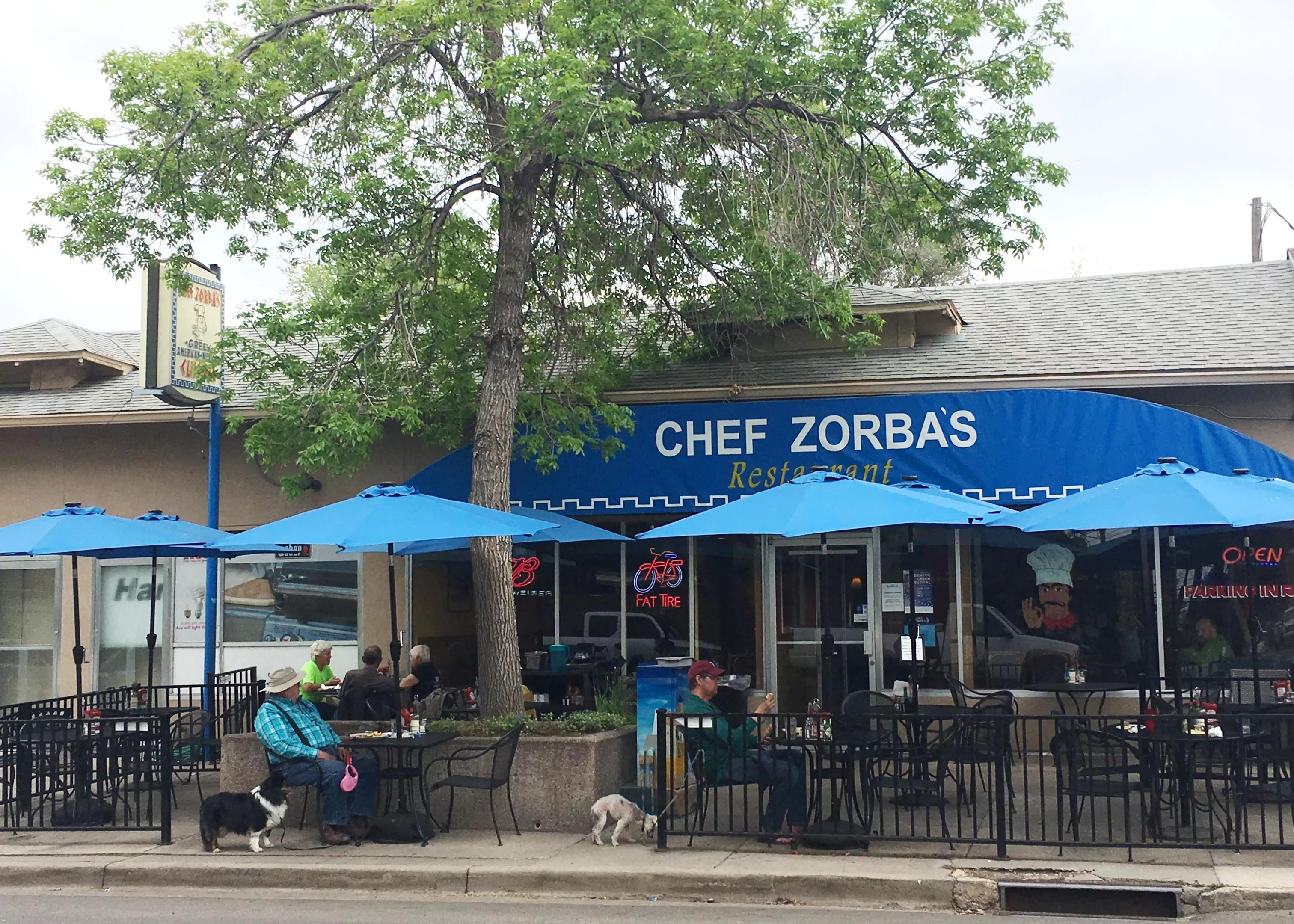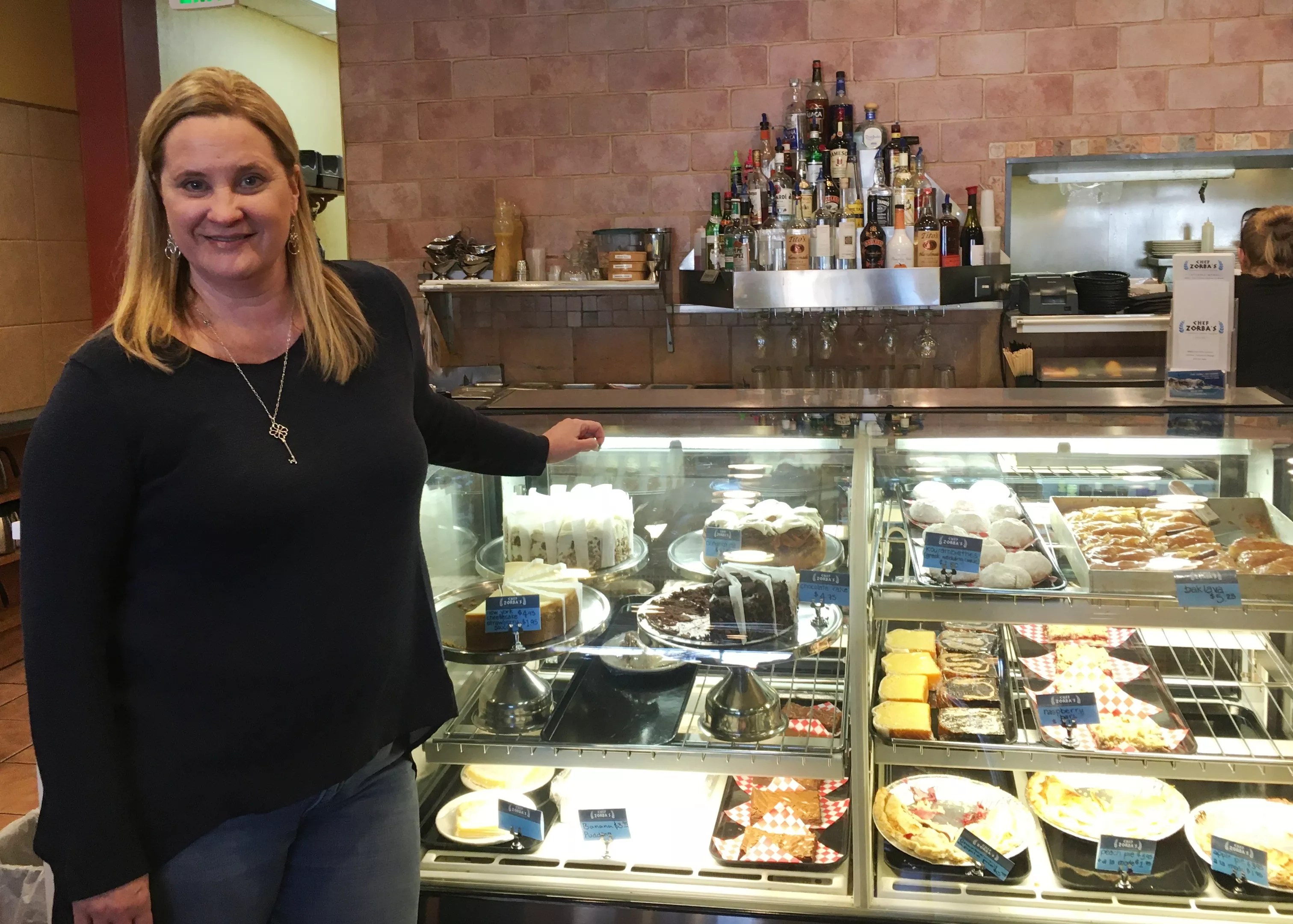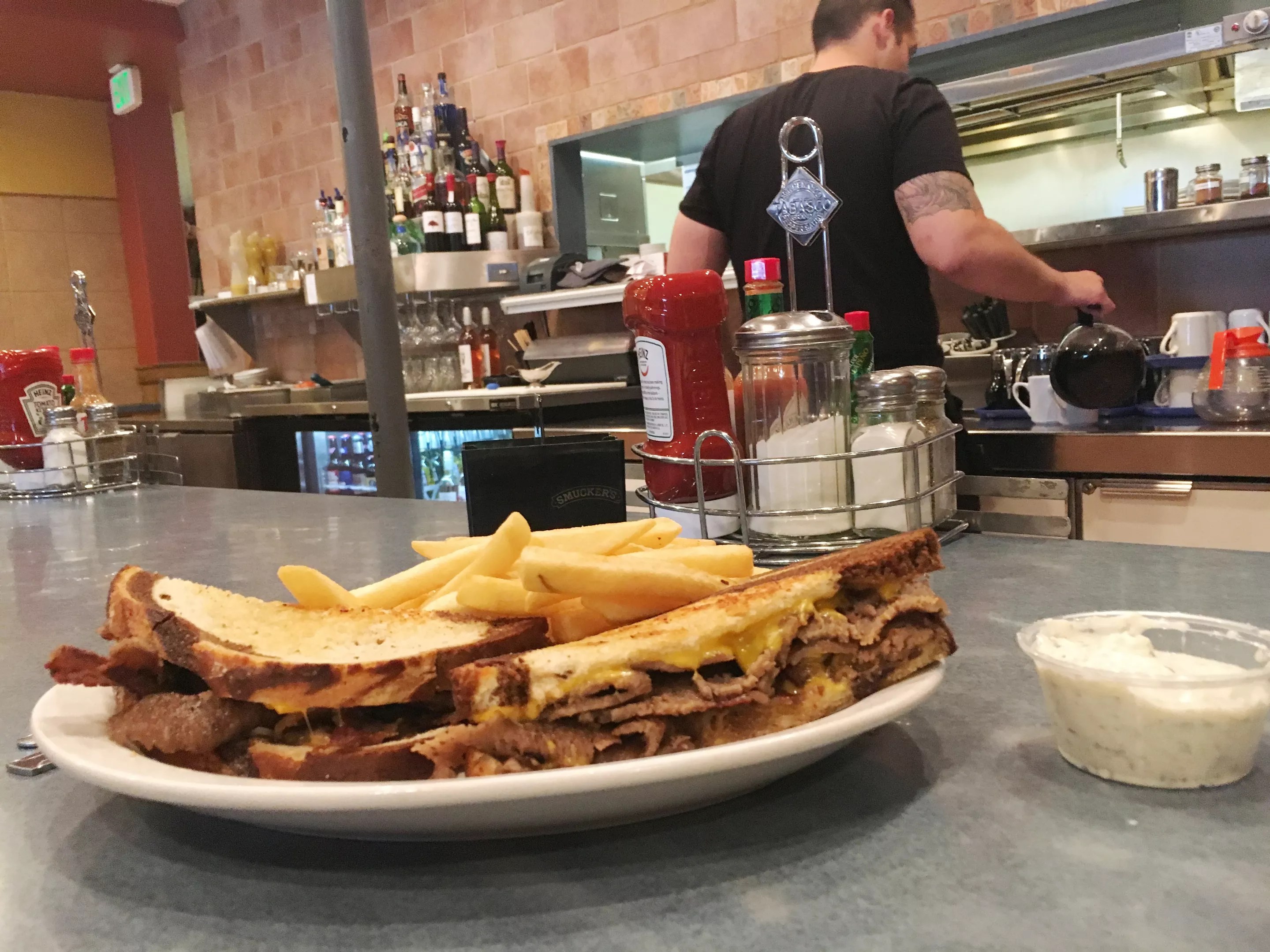
Mark Antonation

Audio By Carbonatix
Breakfast buzzes as usual at Chef Zorba’s Authentic Greek Cuisine: Regular customers shout a hello as they come in the door, servers refill coffees and pack up leftovers (the portions here are substantial), and owner Karen LuKanic chats with guests as they pay their tabs. It feels almost like a big family gathering; some of the regulars have been coming in every day for years, and some of the employees count their tenure in decades rather than months or years.
But the family recently got smaller; at dinnertime, Chef Zorba’s is now dark and empty, because LuKanic just made the difficult decision to shorten hours to breakfast and lunch only. On January 1, the Congress Park restaurant at 2626 East 12th Avenue, now 41 years old, changed its hours to 7 a.m. to 2:30 p.m. daily, primarily because of the new minimum-wage increases that Denver City Council and Mayor Michael Hancock signed into effect in November.
“It wasn’t an easy decision for us,” the owner explains. “We had to do layoffs and went from 35 to about 27 people because of it.”
But the layoffs and shortened hours didn’t come simply because of a change in the minimum wage, which went from $11.10 to $12.85 an hour for non-tipped employees at the beginning of 2020. Chef Zorba’s was already paying at least 25 percent above minimum wage, according to LuKanic. “You’d never be able to hire a cook or dishwasher for minimum wage,” she adds. “Wages have been driven up by low unemployment, and honestly, if you advertised a job paying minimum wage, you probably couldn’t even get anyone to show up and fill out an application.”

Karen LuKanic shows off the new pastry case at Chef Zorba’s.
Mark Antonation
The real problem, LuKanic points out, is that there’s a separate minimum wage for tipped employees, which must be no more than $3.03 less than the non-tipped rate, according to state law. So when the City of Denver signed its increases into law, it also increased wages for tipped employees, who are often the highest-paid employees at any restaurant. LuKanic was forced to either give all her tipped employees a raise of $1.75 an hour (from $8.08 to $9.83) or to let some of them go. After looking at the restaurant’s dinner-hour numbers, she decided that cutting dinner (and the workers needed to staff it) was a better alternative than eliminating other benefits, such as the health insurance she offers to all full-time employees, or worse – closing the restaurant entirely.
LuKanic notes that almost every full-service restaurant in Denver is in the same position, but she at least felt prepared for the changes because of her background in restaurant management (she purchased Chef Zorba’s in 2018 after a career in restaurant operations with big players like Richard Sandoval). “Projecting was my business – asking where we’re going to come up with the money for future changes,” she recalls.
So last fall, when the city first announced its intentions to raise minimum wages, the owner began looking at her numbers. “On a Saturday or Sunday…we have five straight wage earners in back and eight tipped employees in front,” she notes. “Since I’ve owned Zorba’s, I’ve yet to have a server leave with less than $100 in tips on any given day, and it’s frequently double that. And keep in mind, we’re a humble little diner. What full-service restaurateurs take issue with is that we are being forced to pay our tipped employees more, even though they are already the highest-paid employees on the staff.”
And increasing prices to cover higher wages isn’t really a valid solution, since higher prices on the menu equate to higher tips, too. “And I pay taxes on those tips, and servers pay taxes on those tips,” LuKanic points out. “It’s considered income when it comes to taxation..but it’s not considered income in the eyes of the government when it comes to minimum wage.”
Looking further into the numbers, LuKanic determined that the average guest check at Zorba’s would have to go from the current $13 up to $23 in order to cover the cost of giving all front-of-house employees a 22 percent raise. “Would you be willing to pay $23 for pancakes and coffee?” she asks, knowing that the answer for most of her neighborhood customers would be a resounding “No.”
With the elimination of dinner comes changes to the menu. Several entrees, such as lamb chops and other Greek specialties, will be phased out, while more lunch-friendly fare will be added. “We’re adding a ‘Hot Plates’ section to the menu,” LuKanic explains, “that will include our open-faced sandwiches, which have always been popular.” The veggie omelet has also been a big seller, so Zorba’s is adding more vegetarian options and entree-sized salads to appeal to the changing demographics in Congress Park.
LuKanic says she never expected to be the poster child for family-owned businesses in Denver, and she doesn’t want to speak for everyone else. But she also points out that January is often the toughest month of the year, and a time when restaurateurs take a hard look at payroll, rent, taxes and other expenses to see if they can make it until more profitable months fill up dining rooms. “You can look at the number of full-service restaurant closures in Portland, Seattle, Chicago and all over California and New York,” she says. “What’s scary to me is that these restaurants were popular places just like Zorba’s, and their closures had nothing to do with lack of business.

You’ll still be able to get the gyros melt at lunchtime.
Mark Antonation
“But failure is not an option for small-business owners like me,” she adds. “Not just my job and my family’s insurance are on the line; my family’s home and all my personal assets are at stake, as well. So we had to find a way to make it work.”
But there’s always optimism among entrepreneurs, and LuKanic sees a silver lining in the changes: “We were forced to really evaluate our business…and the changes we made will be enough so Zorba’s can stick around for another forty years. There are two more wage hikes and issues like paid leave coming at us, too.”
Organizations such as the Colorado Restaurant Association and the EatDenver Independent Restaurant Network continue to work with city council to lessen the impact of the minimum-wage increase, especially as it affects tipped employees. LuKanic relies on their presence to share her opinion with the city government and fight for the needs of family-owned businesses because she doesn’t have time to lobby and attend meetings herself. She’s too busy running a restaurant, whether that means budgeting for the future, installing a new pastry case or even washing dishes – whatever it takes to support her Zorba’s family.